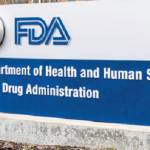The cannabis industry in the United States has been expanding rapidly, driven by changing laws, increasing consumer demand, and the growing popularity of new cannabis-derived products. Among the most talked-about substances in recent years is Delta-8 tetrahydrocannabinol (Delta-8 THC), a cannabinoid derived from hemp. Known for its milder psychoactive effects compared to Delta-9 THC, Delta-8 has gained a significant following, particularly in the form of edibles like Delta-8 gummies. However, as the market for Delta-8 continues to grow, so does the debate over its regulation. The U.S. now stands at a crossroads: should it regulate Delta-8 THC, and if so, how?
What is Delta-8 THC?
Delta-8 THC is a naturally occurring cannabinoid found in small quantities in the cannabis plant. It is chemically similar to Delta-9 THC, the compound most commonly associated with the psychoactive effects of marijuana. However, Delta-8 THC is often described as offering a milder, more clear-headed high, with fewer of the intense psychoactive effects that some users experience with Delta-9 THC.
The 2018 Farm Bill, which legalized hemp and hemp-derived products containing less than 0.3% Delta-9 THC, inadvertently opened the door for Delta-8 THC to enter the market. Since Delta-8 THC can be derived from hemp, it falls into a legal gray area, where it is not explicitly illegal under federal law. This has led to a proliferation of Delta-8 products, including gummies, vapes, and tinctures, in states where Delta-9 THC remains illegal or strictly regulated.
The Rise of Delta-8 Gummies
Delta 8 gummies have become one of the most popular forms of this cannabinoid. These edibles offer a convenient and discreet way to consume Delta-8 THC, with the added benefit of precise dosing. For many consumers, Delta-8 gummies provide a more approachable alternative to Delta-9 THC, especially for those seeking the therapeutic benefits of cannabinoids without the intense psychoactive effects.
The appeal of Delta-8 gummies lies in their ability to deliver a controlled experience. Consumers often report feeling relaxed, clear-headed, and less anxious after consuming Delta-8, making it a popular choice for those looking to unwind or manage stress. Additionally, because Delta-8 is less potent than Delta-9, users may be more comfortable using it during the day or in social situations where they want to remain functional.
However, the rapid growth of the Delta-8 market, particularly in the form of gummies and other edibles, has raised concerns about the safety, legality, and regulation of these products. With little oversight, there are questions about whether Delta-8 gummies are as safe as they are marketed to be.
The Case for Regulation
One of the primary arguments for regulating Delta-8 THC is to ensure consumer safety. Currently, the production and sale of Delta-8 products, including gummies, are largely unregulated at the federal level. This lack of oversight means that there are no standardized testing or labeling requirements for these products, leading to potential risks for consumers.
Inconsistent Potency:
Without regulation, the potency of Delta-8 gummies can vary widely between products. Some may contain more or less Delta-8 THC than advertised, leading to unpredictable effects. This inconsistency can be particularly concerning for new users or those with low tolerance to THC.
Contamination Risks:
The process of synthesizing Delta-8 THC from hemp-derived CBD involves chemical reactions that can leave behind residual solvents or other contaminants if not properly managed. In the absence of regulatory standards, there is no guarantee that Delta-8 gummies are free from harmful substances.
Lack of Research:
While Delta-8 THC is similar to Delta-9 THC, it has not been as extensively studied. There is limited research on its long-term effects, interactions with other medications, or potential risks. Regulation could encourage more research and provide consumers with better information about the safety and efficacy of Delta-8 products.
Youth Access:
Delta-8 gummies, like other cannabis edibles, are often marketed in appealing flavors and packaging that can attract younger consumers. Without age restrictions or proper labeling, there is a risk that these products could be inadvertently consumed by minors.
Regulatory Challenges and Considerations
Regulating Delta-8 THC presents several challenges, not least because of its complicated legal status. While the 2018 Farm Bill legalized hemp-derived products, it did not specifically address Delta-8 THC, leaving its legal status ambiguous. Some states have moved to ban or restrict Delta-8 THC, while others allow its sale with little to no regulation. This patchwork approach has created confusion for consumers, manufacturers, and retailers alike.
Federal vs. State Regulation:
One of the key questions is whether Delta-8 THC should be regulated at the federal level or left to individual states. A federal regulatory framework could provide consistency across the country, ensuring that all Delta-8 products meet the same safety and labeling standards. However, state-level regulation allows for more localized control and the ability to tailor regulations to the specific needs and concerns of residents.
Defining Delta-8 THC:
Another challenge is how to define Delta-8 THC within the regulatory framework. Should it be treated the same as Delta-9 THC, or should it have its own set of regulations? Some argue that because Delta-8 is less potent, it should be subject to less stringent regulations. Others contend that its psychoactive effects warrant similar oversight to Delta-9.
Impact on the Hemp Industry:
The hemp industry, which has benefited from the popularity of Delta-8 products, could be significantly impacted by new regulations. Stricter rules could increase production costs, limit the types of products that can be sold, and reduce market opportunities for small businesses. On the other hand, regulation could also legitimize the industry, leading to greater consumer trust and market stability.
Consumer Education:
Any regulatory effort should also focus on educating consumers about Delta-8 THC. This includes providing clear information about its effects, potential risks, and safe usage guidelines. Education campaigns could help consumers make informed decisions and reduce the likelihood of adverse effects from misuse.
The Future of Delta-8 THC Regulation
The U.S. is at a pivotal moment in determining the future of Delta-8 THC. As the popularity of Delta-8 gummies and other products continues to rise, the pressure on regulators to take action will only increase. Whether through federal legislation, state-level rules, or a combination of both, the regulation of Delta-8 THC is likely to become a key issue in the ongoing debate over cannabis policy.
In the meantime, consumers should exercise caution when purchasing Delta-8 products. Look for products from reputable companies that provide third-party lab testing results, clearly label their products, and have a track record of compliance with existing laws. By being informed and cautious, consumers can enjoy the benefits of Delta-8 THC while minimizing potential risks.
Conclusion
The opportunity to regulate Delta-8 THC represents a significant moment for the U.S. cannabis industry and public health. As products like delta 8 gummies continue to gain popularity, the need for clear, consistent, and effective regulation becomes increasingly important. Such regulation could address concerns about safety, potency, and youth access, while also providing a framework for the continued growth and legitimacy of the Delta-8 market.
Whether the U.S. seizes this opportunity remains to be seen. However, what is clear is that the decisions made in the coming years will have a lasting impact on the cannabis industry and its consumers. By taking a thoughtful and balanced approach to regulation, the U.S. can ensure that Delta-8 THC products are safe, accessible, and properly managed for the benefit of all.






